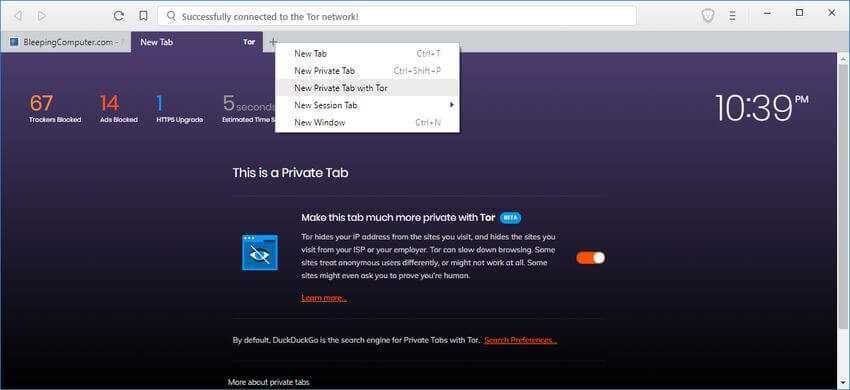Brave, a world wide official, browser, has released a new version that allows you to surf the internet anonymously via Tor.

Brave Browser, however, is popular with anonymous users due to its original privacy features. It now comes with the new feature "Private Tabs with Tor", to confirm its reputation in security.
The Βrave team reports that the new “Private Tabs with Tor” feature will be useful to users looking for additional protection beyond what they can get from the local computer their. Private browsing sessions were invented to wipe data from the browser after a browsing session is over. But this way of browsing is not transparent to ISPs and the websites a user visits, which can record the user's movements.
The built-in Tor technology now available at Brave gives you the ability to anonymously move the internet by changing the user's IP address by diverting browser traffic through the Tor network.
Brave although it does not have a stable version yet as it is under development and every version that has been released so far is beta, it is very popular in privacy circles. The reason is that Brave's default configuration blocks ads, scripts monitoringand crypto mining scripts.
Brave's private browsing tabs do not save users' browsing history or cookies and also use the searching machine DuckDuckGo (a search engine that does not log the user) as the browser's default search provider.
The version of Brave released today, including Tor support, is v0.23 beta. You can download it from Brave website. Runs on Windows 32 and 64 Bit, macOS10.9+, and on 64 bit linux for Debian-Ubuntu-Mint-Fedora-OpenSUSE. Σε smartphone τρέχει σε Android και iOS.





